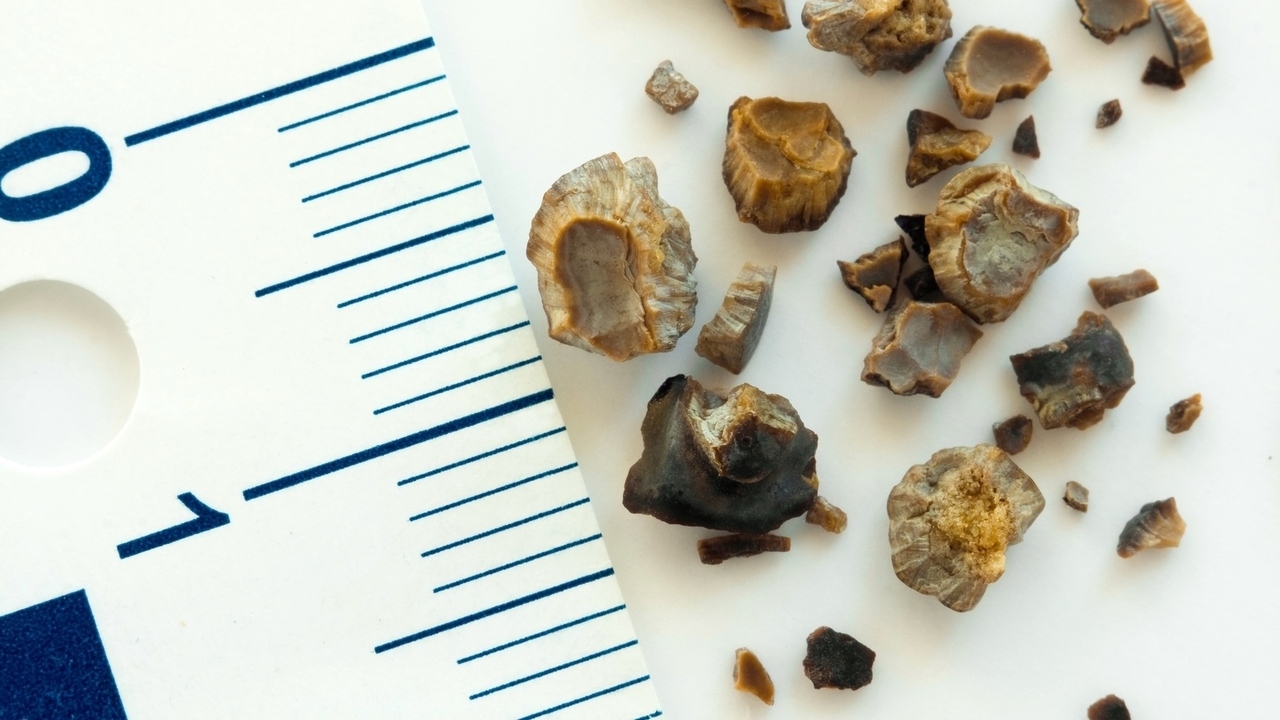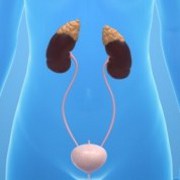Kidney stones. The very words can make one wince. They conjure up an image of a victim writhing in agony.
Actually, not all kidney stones are painful. Some are small enough to exit the urinary tract without notice. But bigger ones make their presence known upon entering the ureters (tubes that carry urine to the bladder) by causing intense pain in the side, in the back, or under the ribs.
Pain may move into the lower abdomen and the groin area. The urge to urinate may be strong, and the act excruciating. Urine may be brown, pink or red. Nausea and vomiting, fever and chills may occur.
Kidney stones consist of crystals formed from minerals and acid salts in the urine. They are often a result of not drinking enough fluids, allowing waste products to become too concentrated.
The kidneys' pH level becomes too acidic making this an environment ripe for stones. These crystals can lodge in the kidney and get bigger. A stone stuck in a ureter will block urine flow, causing the kidney to swell and pain to escalate.
People with Crohns' Disease, Dent's Disease, high blood pressure, inflammatory bowel disease, and infections of the urinary tract are more prone to kidney stones.
Other conditions increasing susceptibility are hyperparathyroidism, obesity, medullary sponge kidney, and renal tubular acidosis. It is speculated that fluoridation of drinking water may also contribute.
Despite the anguish sometimes afflicted, damage from kidney stones is generally not permanent. Often stones will pass without incident, or even the awareness, of the individual passing them.
Occasionally, in the case of an especially large stone, or if infection is present, something more than pain medication is required.
A doctor may perform extracorporeal shock wave lithotripsy, using a machine that breaks the stone into pieces with shock waves.
Or a urologist may enter the urethra, ureters and bladder with an instrument to extract the stone, sometimes breaking it first for easier removal.
As a last resort surgery may sometimes be necessary.
Kidney stones are more common among men than women, particularly between 30 and 50 years of age. A tendency to form kidney stones can run in familes. And a person who has had one has a good chance of having more in the future.
Drinking plenty of water can help to prevent the formation of kidney stones. Diet changes depending on the type of kidney stone may be in order.
Resources:
What Are Kidney Stones? What Causes Kidney Stones?
http://www.medicalnewstoday.com/articles/154193.php
Mayo Clinic: Kidney Stones
http://www.mayoclinic.com/health/kidney-stones/DS00282
MedlinePlus: Kidney Stones
http://www.nlm.nih.gov/medlineplus/ency/article/000458.htm
Obesity -- Mild or Severe -- Raises Kidney Stone Risk
http://www.sciencedaily.com/releases/2010/02/100217182350.htm
What You Should Know About Kidney Stones
http://familydoctor.org/online/famdocen/home/common/kidney/900.html
Patient information: Kidney stones in adults
http://www.utdol.com/patients/content/topic.do?topicKey=~wwC1.E6r/jr6Pk
Visit Jody's website and blog at http://www.ncubator.ca and http://ncubator.ca/blogger





Add a Comment2 Comments
Hi Pat,
Can't imagine what a shock that must have been for you that day! I hope you never have another experience like that one.
Prevention is definitely the way to go.
Thanks for writing.
Jody
March 13, 2010 - 8:46pmThis Comment
Jody - I had never heard of kidney stones until I simply went to the bathroom one day and passed one while urinating. The pain was excruciating, and I feel very fortunate that this has only happened once. A man I worked with told me that he had passed several kidney stones, and that when he did it gave him new appreciation for what his wife went through during childbirth. Hopefully the information you've provided will help readers learn steps they can take to prevent having these experiences. Take care, Pat
March 10, 2010 - 6:14pmThis Comment